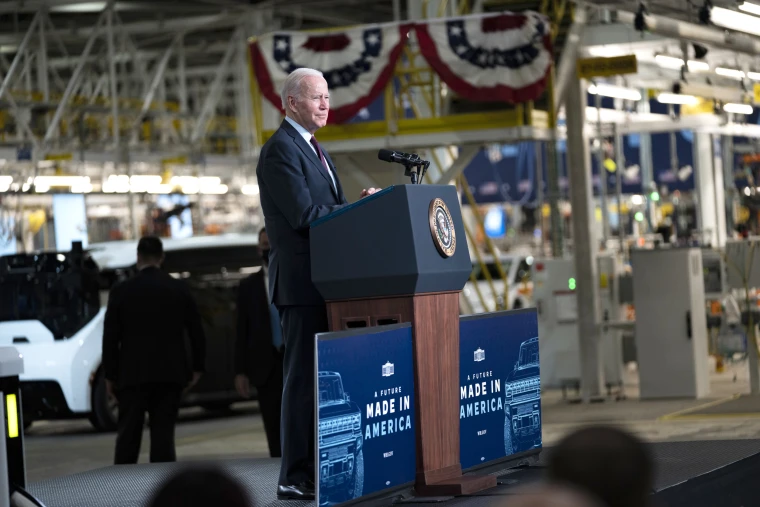US Car Emission Limits Enhanced by Biden Administration to Foster Electric Vehicle Adoption
President Joe Biden has introduced the most stringent regulations on vehicle emissions in the history of the United States, aiming to expedite the transition of the auto industry towards electric vehicles (EVs). The plan sets a target for 56% of all new vehicle sales to be electric by 2032, a significant surge from current figures. Despite being slightly softened from last year’s initial draft, the Biden administration asserts that these regulations will still markedly decrease greenhouse gas emissions, a crucial step in combating climate change. According to the Environmental Protection Agency (EPA), this new rule is anticipated to prevent approximately 7 billion tons of carbon dioxide emissions over the next three decades.
While environmental groups generally embraced the regulation, some activists expressed disappointment, hoping for a more robust measure. Notably, the US’s approach remains more moderate compared to the European Union and the UK, both of which plan to prohibit the sale of petrol-powered cars by 2035. In the UK, Prime Minister Rishi Sunak delayed the ban by five years from the initial deadline of 2030.
The American automotive industry raised concerns about slower EV sales growth in opposition to last year’s proposed target, which would have mandated that EVs make up 67% of all new car sales by 2032. Currently, EVs comprise less than 8% of total new car sales. The new regulation progressively tightens restrictions on allowable vehicle exhaust pollution each year, imposing significant fines on manufacturers failing to meet the standards. Companies are still permitted to produce petrol-powered vehicles, as long as they constitute a diminishing portion of their overall product lineup.
Anticipated legal challenges from the oil industry and Republican-led states loom over the regulation, with potential resolution in the Supreme Court. Meanwhile, the Alliance for Automotive Innovation, representing the car industry, welcomed the adjusted pace of implementation but deemed the goal “extraordinarily ambitious.”
This policy underscores the delicate political balance President Biden must navigate. As he campaigns for re-election against Republican opponent Donald Trump, Biden aims to garner support from auto workers in crucial states like Michigan while simultaneously addressing climate change—a top priority for many Democrats. Conversely, Trump has promised to reverse environmental regulations enacted by Biden if re-elected. Critics of the new regulation, including the Trump campaign spokeswoman Karoline Leavitt and Republican Speaker of the House Mike Johnson, argue that it will burden consumers with expensive vehicles and harm the US auto industry. Leavitt asserted that Trump would repeal the regulation immediately upon taking office, prioritizing consumer choice and industry preservation. The average sale price of an EV last year was approximately $53,500, notably higher than petrol-powered cars, potentially limiting accessibility for average American consumers. Additionally, Johnson warned of increased reliance on China for the minerals necessary for producing vehicle batteries, further complicating the policy’s implications.




























Comment Template